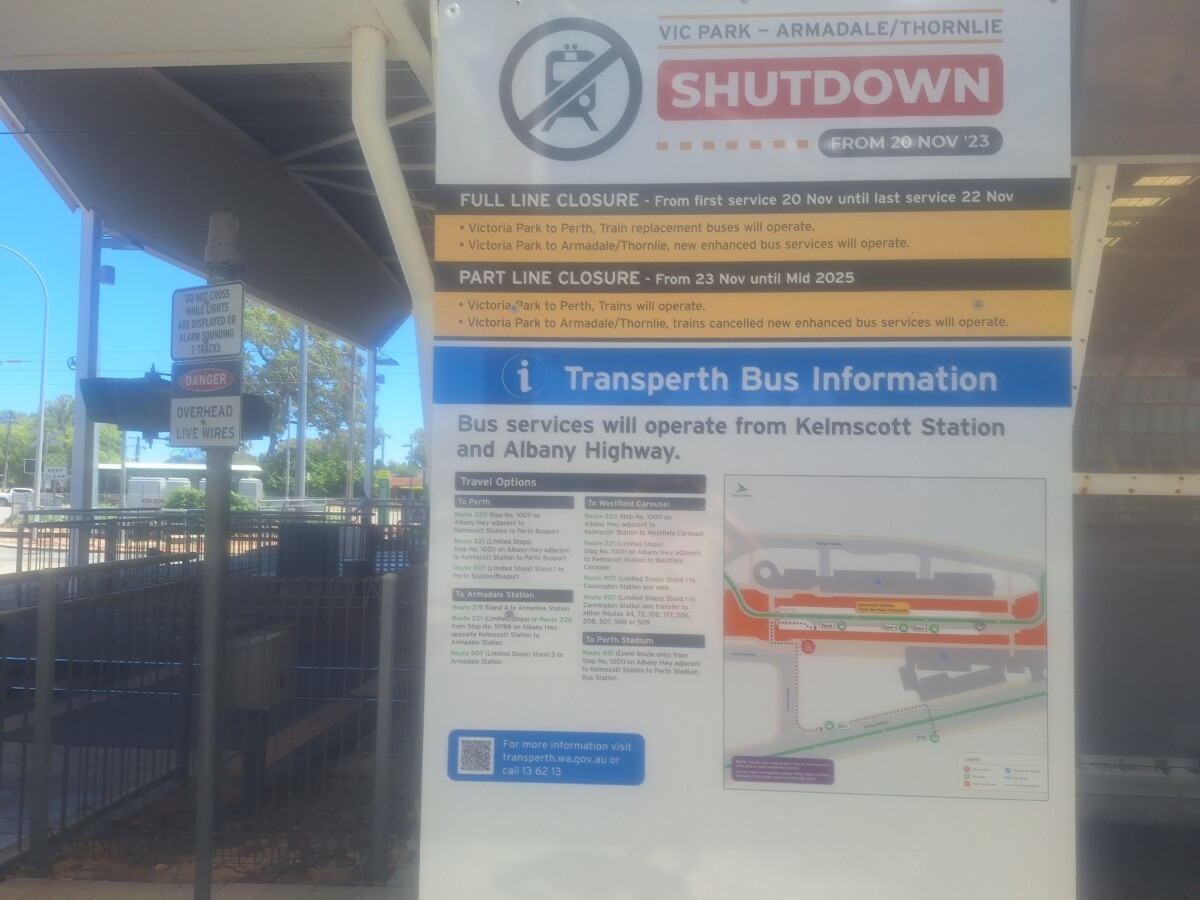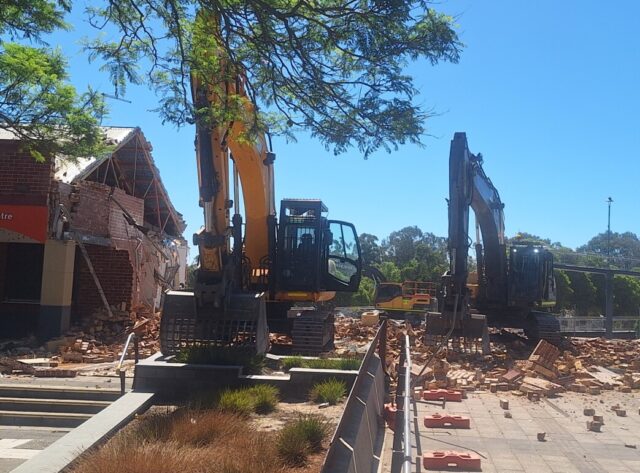The Armadale Line shutdown is generally seen as ‘a necessary pain in the butt’; a short-term minor irritation for long-term benefits.
But for Helen Stanwix, the loss of the local train has also meant a loss of her independence and her dignity.
Helen has progressive dystonia, a neurological disorder which acts a lot like Parkinson’s.
On a good day she can get around with just a walking stick. On a not-so-good day she needs a walking frame. And then there are days that she’s incapacitated without her mobility scooter.
“With a lot of neurological conditions, you can’t choose when you have a good day. You just wake up and work with the cards you’ve been dealt,” she said.
Helen said she’s currently stuck if she’s having a mobility scooter kind of day, and she’s without her NDIS support workers.
“Mobility scooters can’t fit on buses – they’re too wide and the angle of entry is too sharp,” she said.
She said she once witnessed a passenger on a gopher trying to board a bus.
“He did achieve it, but he had to sit right beside the driver, and he had to disembark every time someone wanted to get on or off the bus. It added an extra five minutes at each stop,” she said.
Despite the state government hype surrounding the increased number of buses, new routes and bus-tracking technologies, nothing substantial has been put in place for people who simply cannot board a bus because of their disability.

Another case was highlighted on radio recently when East Victoria Park resident Nihal Iscer – who is vision impaired – was facing the decision to sell her house because of the line shutdown and an inability to use the replacement bus system because of her disability.
After the media furore, the government stepped in to offer Nihal fully subsidised taxi vouchers.
“The government acknowledges that while every effort is made to ensure its mass transit systems meet the needs of everyone, in some circumstances, bespoke solutions may be required,” a government spokesperson said.
“Anyone with a disability requiring additional support during the Armadale Line upgrades is encouraged to contact the PTA or Metronet, to investigate potential options and solutions for transport assistance.
“The government will be monitoring the situation closely during the Armadale Line upgrades and will assess any potential changes and improvements that may be identified.”
On the Transperth website, there are also directions to use the Taxi User Subsidy Scheme (TUSS) and other community transport initiatives like St John Community Transport and Patient Transfer services.
But Helen said she’s been trying to find answers and alternatives for months and coming up against “brick walls”.
“I’ve contacted the Minister for Transport, the Minister for Disability and Metronet and gotten nowhere. The only person who understands is (disabled) Senator Jordan Steele-John who has put in a complaint for me,” Helen said.
After an extensive application process, Helen was accepted for the TUSS voucher system. But she is only eligible for a 50 per cent subsidy, up to a maximum cost of $35.

“For me to go from here to Royal Perth Hospital it’s over $80 one way,” she said.
“If I’m going to an appointment that I know I can’t miss, I’ll start saving weeks in advance for the $100 it costs me to go both ways. Or I have to borrow the money and pay it back, which is humiliating. All I want to do is be independent.”
A spokesperson for St John said “eligibility for financial support to cover costs depends on personal circumstances and which service is being sought”.
Helen said she applied for the service a while ago and was deemed ineligible.
She said there are others in the same boat as her at the Over 55s village in Armadale where she lives.
“I’ve talked with many who are struggling with this. They said they only bought the place because it’s close to the railway line. A lot of them are too scared to speak up because they don’t want to be a bother,” she said.
“But some of us are stuck here now for 18 months, and that’s if it all runs to schedule.”
Helen said she brainstormed with a group of other people affected by the Armadale line closure and made the suggestion to the government that an investment in “dedicated disability vans” running once per hour along the rail line could be a workable solution.
“It’s an investment to start with, but those vans or minibuses could be repurposed for other rail closures in future,” she said.
But the suggestion was knocked back, she said.
“I get angry because I’ve been trying to engage with the right people, I’ve tried suggesting things and it just gets ignored,” she said.
“We’re not trying to block progress, but we shouldn’t be forgotten. Able-bodied people have been offered solutions, so why shouldn’t disabled people get the same treatment?”














